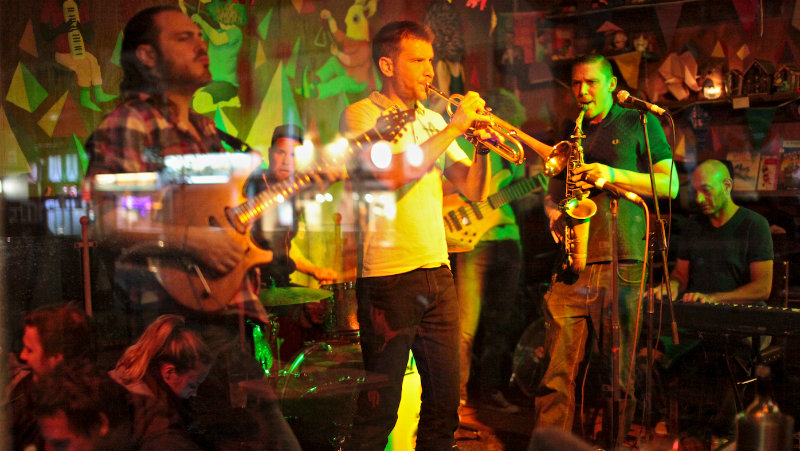Bristol’s vibrant music scene and major festivals on its doorstep such as Glastonbury add nearly £300m a year to the regional economy, a major new report out today shows.
The study by industry body UK Music shows more than 772,000 visitors came to the South West last year specifically to attend live music events.
These visitors generated £297m for the regional economy through ticket sales, accommodation, food and drink and other spending – in turn sustaining nearly 2,750 full-time local jobs.
And it is not just UK tourists who make a beeline to the region for its cultural events – according to the research, the South West is also a magnet for overseas music fans who spend on average £910 each in the region per visit.
The report, called Wish You Were Here 2015, is one of the first to demonstrate the value of live music and music tourism to the region through live concerts and festivals and the huge boost they bring to it both culturally and economically.
The region has a huge advantage over other parts of the UK as the home to the iconic Glastonbury Festival. Now the world’s most-famous event of its kind, it has been staged on the Eavis family’s Worthy Farm at Pilton, Somerset, on and off since 1970 when 1,500 people paid £1 each to listen to Marc Bolan among others.
This year all 135,000 tickets – priced at £220 each – sold out in 25 minutes when they became available last October.
But Bristol also lures thousands of visitors with its eclectic mix of festivals from Love Saves The day, the Harbour Festival and St Pauls Carnival, to a string of smaller events spanning genres from jazz and folk to classical and world music, as well as the bands that play at its many food and drink festivals.
Bristol’s live performance venues also play a key role in creating the city’s super-rich seam of diverse music styles, ranging from the O2 Academy, Colston Hall and St George’s to The Fleece, The Old Duke and The Louisiana, while the long-awaited 12,000-capacity arena, to be built near Temple Meads, will bring bigger touring artists to city for the first time when it opens in 2017.
The vital role music plays in the city was recognised last year when Mayor George Ferguson appointed Bristol-born jazz musician James Morton as its first international ambassador for music to promote the city across the globe as a hotbed of musical talent with a vibrant and diverse music scene.
UK Music chief executive Jo Dipple said: “Our rich music heritage and infrastructure has made the UK the go-to destination for live music globally and these statistics show that tourism is now a bedrock of British music and the wider economy.”
Culture Secretary John Whittingdale said festivals like Glastonbury were one of the reasons why international tourism was booming in the UK.
“We know our UK creative industries contribute an astonishing £76.9bn to the UK economy but this report confirms they are truly world-class and a powerful advert for the UK,” he said.
Local MPs also welcomed the report as demonstrating to a wider audience what many in the area have known for years – that its music and culture have a huge impact on the economy and also generate spin-off benefits for other sectors.
Bristol East MP Kerry McCarthy said: “These figures released by UK Music highlight the economic contribution of live music to the South West, with concerts generating £76 million in direct and indirect spending, and festivals – including Glastonbury of course – generating £221 million. Live music is an important part of Bristol’s cultural offer and creative economy, which is why I’ve been campaigning for an Agent of Change principle to be incorporated into planning law. This would protect long-established and much loved music venues, like Bristol’s The Fleece, from the threat of closure due to noise complaints when there is new residential development in the area.”
UK Music is an umbrella organisation representing the UK commercial music industry – from artists, musicians, songwriters and composers, to record labels, music managers, music publishers, studio producers, music licensing organisations and the live music industry.
Pictured: The Rawness, featuring Bristol’s Music Ambassador and sax player James Morton, playing at The Gallimaufry pub in Gloucester Road































